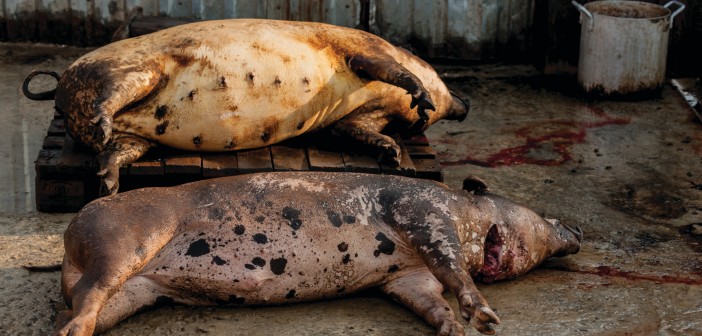Jurgen Preugschas is president of family pig business Pigs R Us, in Mayerthorpe, Alberta, a former president of the Canadian Pork Council and a director of the Alberta Livestock and Meat Agency
The Canadian hog industry has seen massive changes over the past number of years. We have dropped from around 20,000 producers to fewer than 7,000 in the past two decades.
In addition, integration in the industry continues to accelerate and is probably close to 50%. Independent producers are struggling, due, in part, to a price discovery model based on the US market.
It seems as if survival means aligning yourself with some integration model, either through being a contract producer or through contract alignment.
Initially, 2019 was shaping up to be a banner year, with prices rising and futures extremely strong, allowing producers to lock in a profit for the whole year if they did so in the spring. Everything looked positive production-wise and the export market was projected to be very strong in light of the anticipated demand out of China.
But suddenly things changed. The US trade spat with China flared up and huge tariffs were put on US pork going to China.
We in Canada were affected as this lowered the US hog price, which directly affected us due to a formula that uses US prices to set the Canadian producer price.
Even with this, producers remained positive that large volumes of pork could be exported to China at good prices. Then complete disaster struck when Canada was banned from shipping any pork to China. A potentially profitable year turned into a very dismal year filled with red ink for Canadian hog producers.
This past month, China has once again reopened pork imports from Canada, but, as yet, that has not been reflected in an upswing in our price, once again due to US prices, which still haven’t recovered from the Chinese tariffs. But with these tariffs recently reduced, we expect prices to begin to strengthen in the New Year.
The other big fear in Canada is the threat of African swine fever (ASF) coming in. Canada exports 70% of our pigs born, either as live pigs to the US or as pork around the world. With an outbreak, the borders would immediately close and you can just imagine the chaos this would bring to the industry.
On our Canadian pig farms, we employ many foreign workers, lots of whom come from the Philippines and Eastern Europe. With workers travelling home into countries with ASF, the danger is always that someone, somewhere will bring the disease into our country.
The Canadian Pork Council, together with our provincial association and the federal government, has been diligently working with producers and processors to put protocols in place to minimise the risk of an outbreak.
The Canadian pork industry has worked hard to develop markets around the world and encourage our government to sign trade agreements to allow us to have competitive access. One of the trade deals is with the European Union.
If Brexit happens, the industry will be pushing hard to get a bilateral deal with the UK.
The future of the Canadian industry relies on its ability to continue to trade with countries around the world on a level playing field. Political interference can and does affect the ability to trade fairly and is one of the biggest risks to the industry in Canada.




